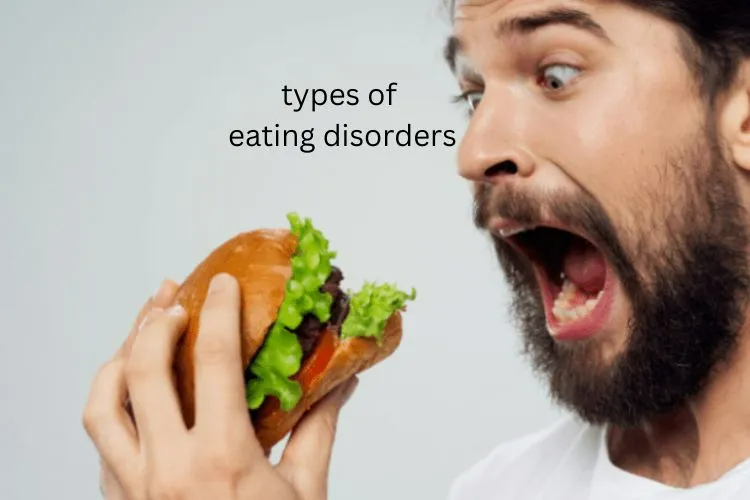“To be beautiful means to be yourself. You don’t need to be accepted by others. You need to accept yourself.”
– Thich Nhat Hanh
What is an Eating Disorder?
Eating disorders have serious medical, psychiatric, and psychosocial repercussions and have a negative impact on a person’s quality of life. Eating disorders sufferers engage in disordered eating behaviors as a coping mechanism for challenging circumstances or emotions. The majority of those who struggle with eating disorders exhibit abnormal behaviors, thoughts, and attitudes towards food, eating, and how their body shape or weight defines them. It’s crucial to keep in mind that eating disorders are not solely related to food, but also to feel.
What are the Causes of Eating Disorder?
Eating disorders can be attributed to a variety of factors. This tendency has been influenced by a number of variables, such as genetics, personality traits, perceived internal and external demands to be thin owing to societal norms, and greater advertising of an ideal body type via social media platforms. Recent research has revealed that eating disorders may also be caused by changes in the biochemistry and structure of the brain, especially those involving dopamine and serotonin levels.
Various Types of Eating Disorders
Do you know that there are more than just three types of commonly known eating disorders? Have you wondered what the different types of eating disorders are? Is there a distinction between the symptoms that people experience in each of the types? Read along to learn more.
The Diagnostic & Statistical Manual (DSM-V) lists three eating disorders that are particularly well-known: anorexia nervosa, bulimia nervosa, and binge eating disorder. Avoidant-restrictive food intake disorder (ARFID) and Other Specified Feeding and Eating Disorder are the other two disorders included in the DSM (OSFED). All types of eating disorders have one thing in common i.e., the underlying triggers. Often a lot of overlap is observed in the diagnoses of eating disorders.
1) Anorexia Nervosa– It is characterized by extreme food restriction and an intense fear of gaining weight. Restricting food intake, malnutrition and even dangerous health problems.
2) Bulimia Nervosa– An ongoing cycle of binge eating followed by a loss of control over the same and then purging to get rid of the extra gained caloric intake in an unhealthy manner.
3) Binge eating Disorder– In a short period of time, a person will eat an exceptionally large amount of food. People frequently believe they have little control over what or when they consume.
Other types of eating disorders are as follows,
1) Eating Disorder NOS(not otherwise specified)– Many people who have clearly disordered eating do not match the precise diagnostic criteria for one of the specific disorders and are labelled with Eating Disorder NOS. Failure to meet formal criteria does not always imply that the person does not have a serious and major disorder.
2) Night Eating Syndrome– Studies have recently discovered an eating condition that happens at a 24-hour cycle and is characterized by a lack of appetite in the morning and overeating at the night with agitation and insomnia. Night-eating syndrome happens due to variations in hormones associated with sleep, appetite, and stress. Night eaters also do not have a night-time rise in leptin, which lowers hunger, and cortisol, which raises stress levels throughout the day.
3) Orthorexia– An obsession with avoiding certain meals that people believe are hazardous irrespective of the consequences that would follow.
4) Pica– A is a condition in which a person eats things that aren’t food and have no nutritional value. It is commonly found in people of all age ranges and can cause adverse effects on health even if a person does not ingest toxic items.
5) Prader-Willi Syndrome– PWS is a complex genetic illness that causes low muscle tone, small stature, inadequate sexual development, cognitive difficulties, problematic behaviors, and a constant feeling of hunger, which can lead to overeating and life-threatening obesity.
6) Rumination– The term rumination comes from the Latin verb ‘ruminate’, which means “to chew the cud.” The deliberate or involuntary regurgitation and rechewing of partially digested food that is either swallowed or ejected are referred to as rumination.
Our mental wellness experts at Ganeshaspeaks.com can equip you with quite a few skills to deal with day-to-day stressors.
Eating Disorders Test – A Step towards Treatment of Eating Disorders
Tests on eating disorders are available online or can be administered by a psychologist or a health care provider. It is important to note that these tests are not a substitute for a professional evaluation by a clinician; to necessitate a treatment plan. For someone suffering from an eating disorder, treatment options are many and easily available. It enables individuals to connect with their body in a more delicate and sensitive manner.
The rock appears bigger from closer as opposed to standing farther away from it. Hence, how people perceive you depends on their perception and they are entitled to it. On the flip side, how you perceive yourself can be a game changer. Your body is beautiful and so are you inside-out. Once acceptance sets in, you will eventually grow to love your body!
Are you suffering from an eating disorder? Address the psychological distress related to it by speaking to our online psychologist at Ganeshaspeaks.com.
